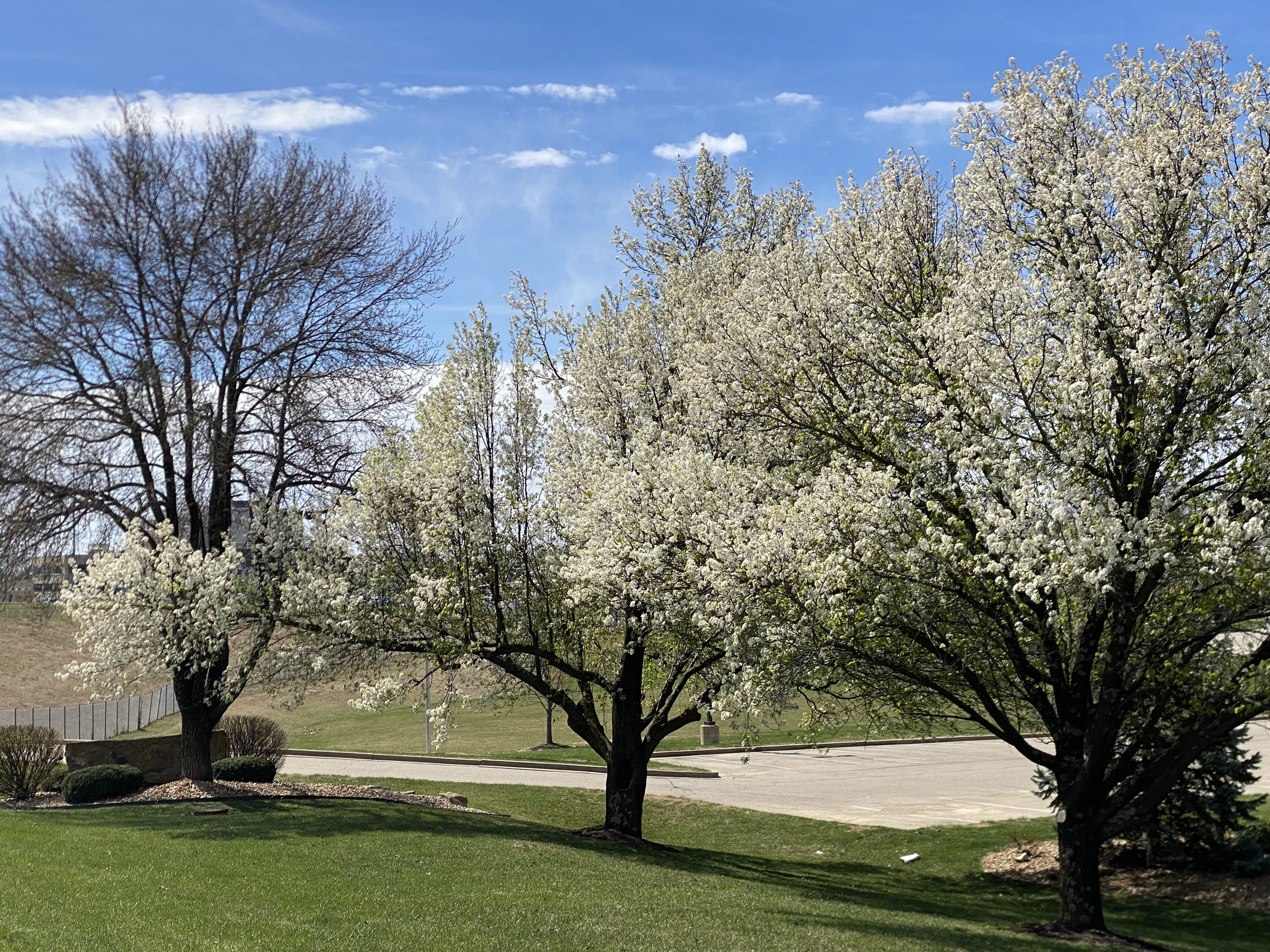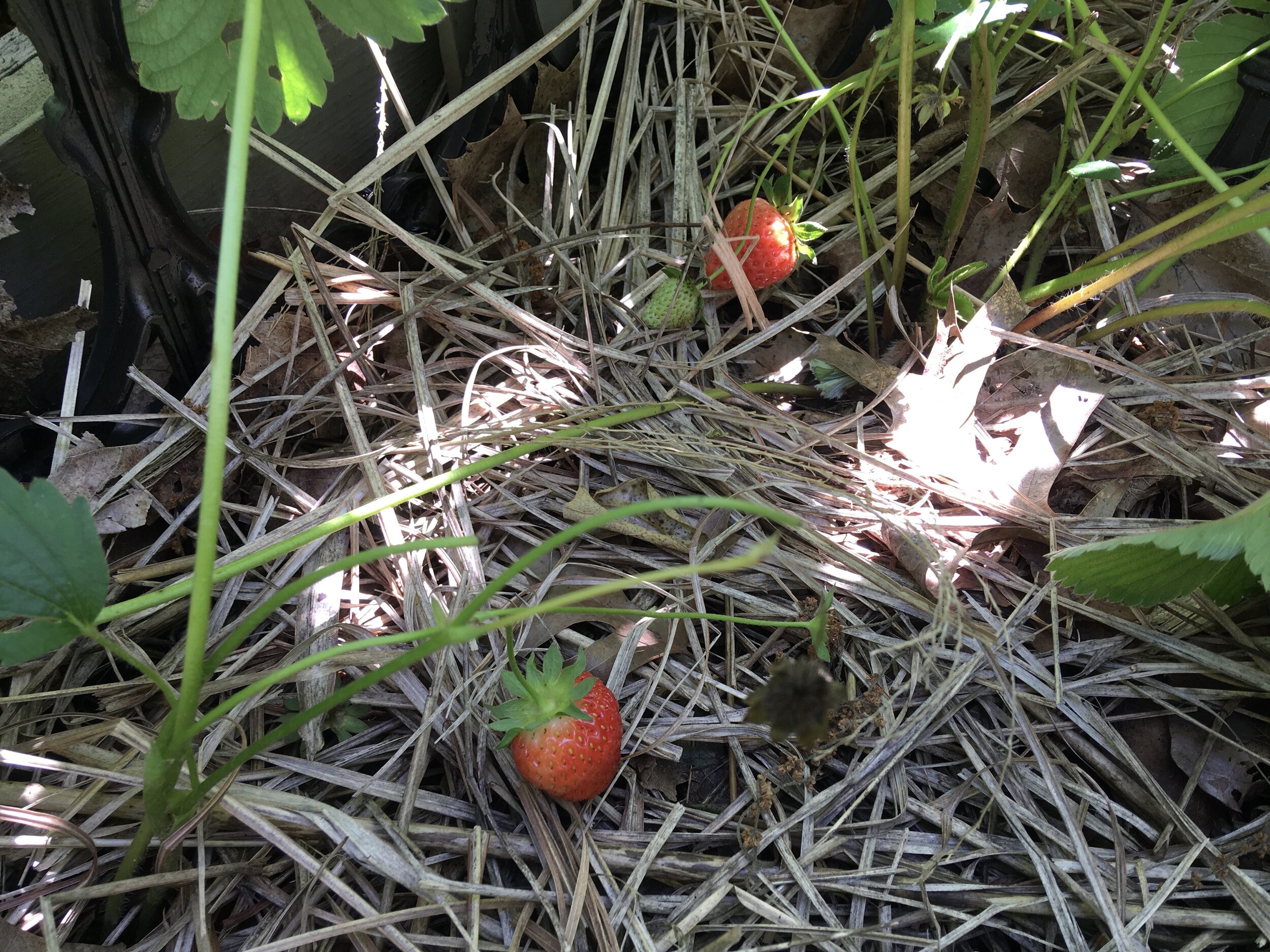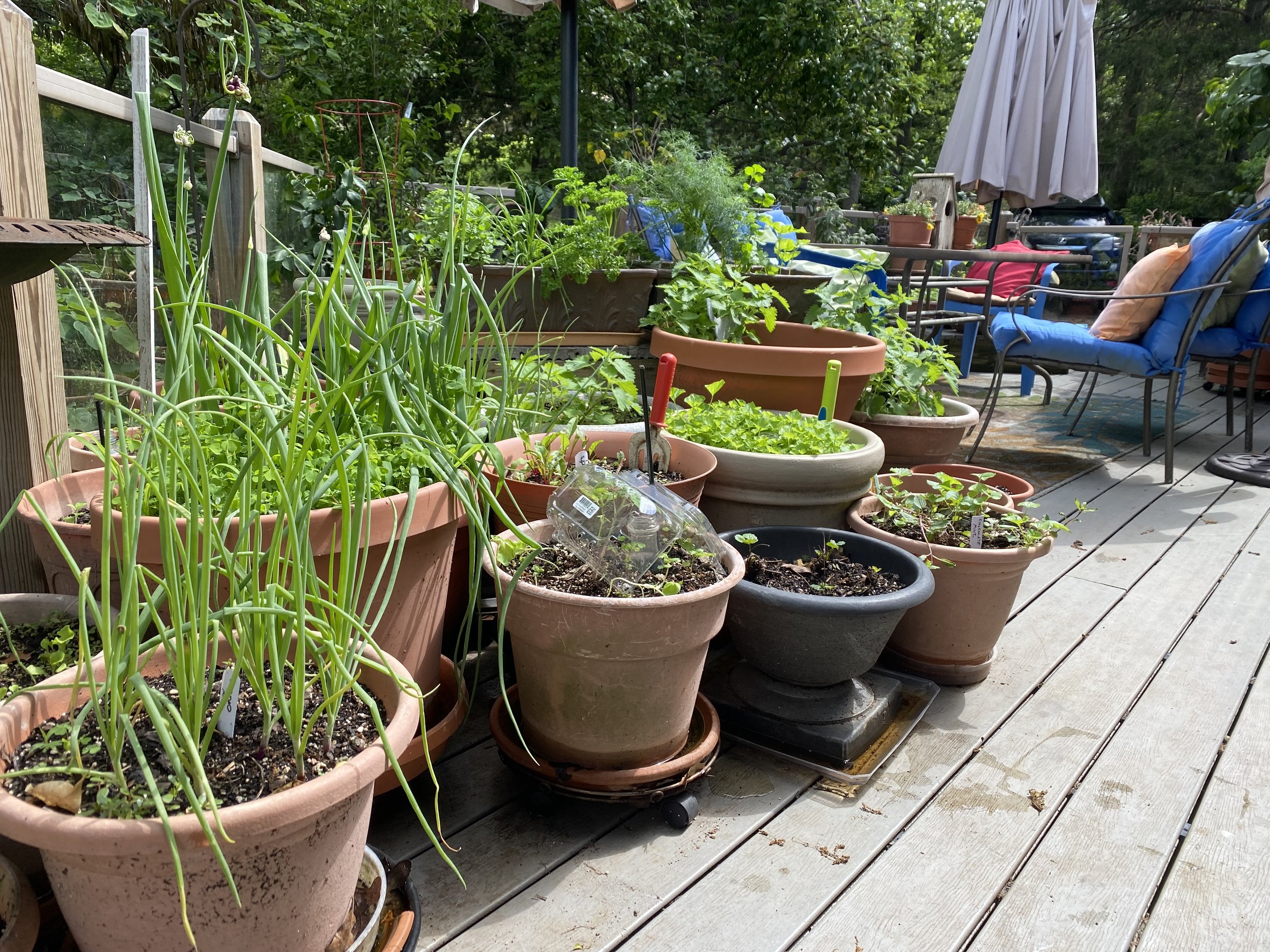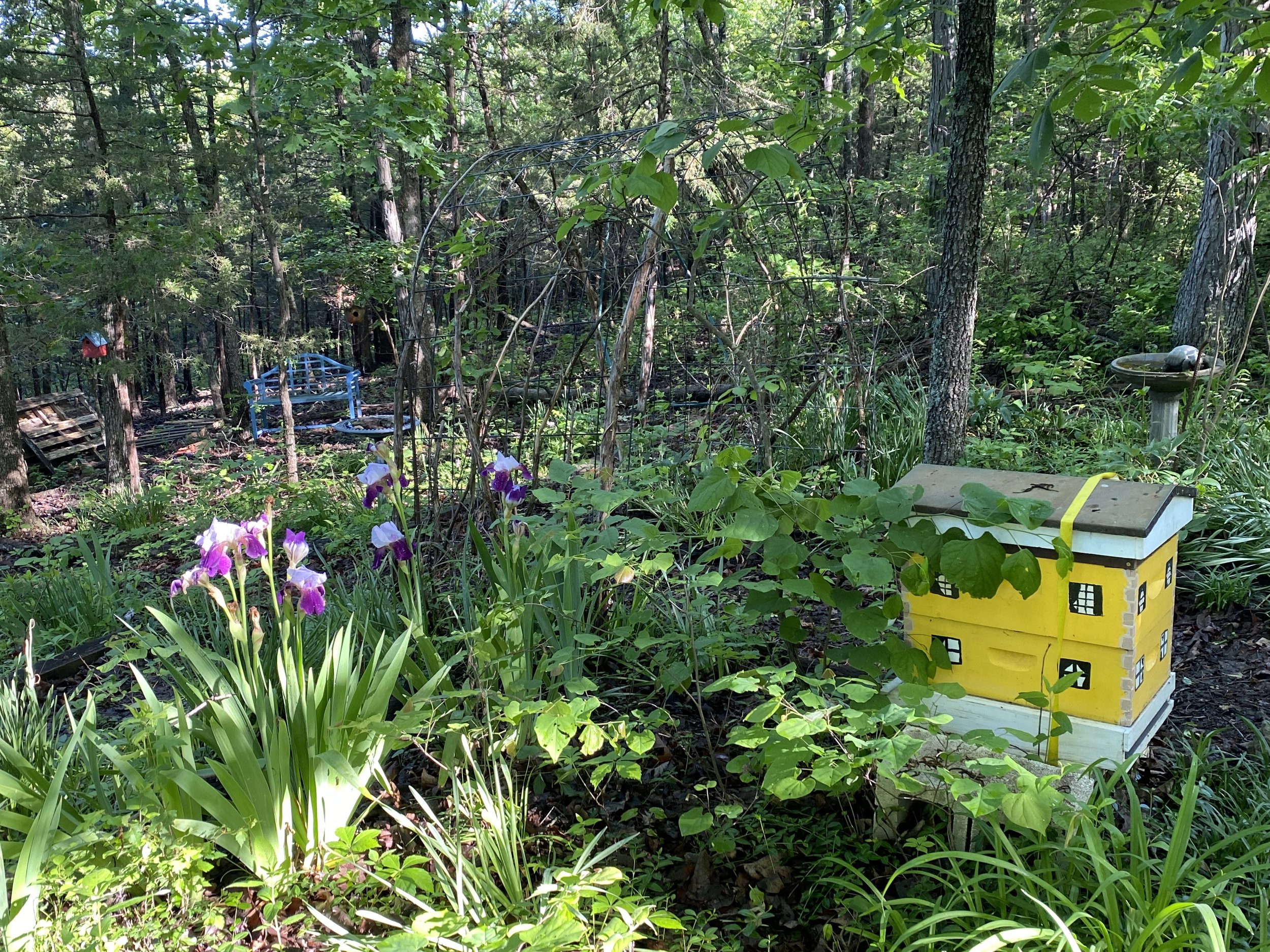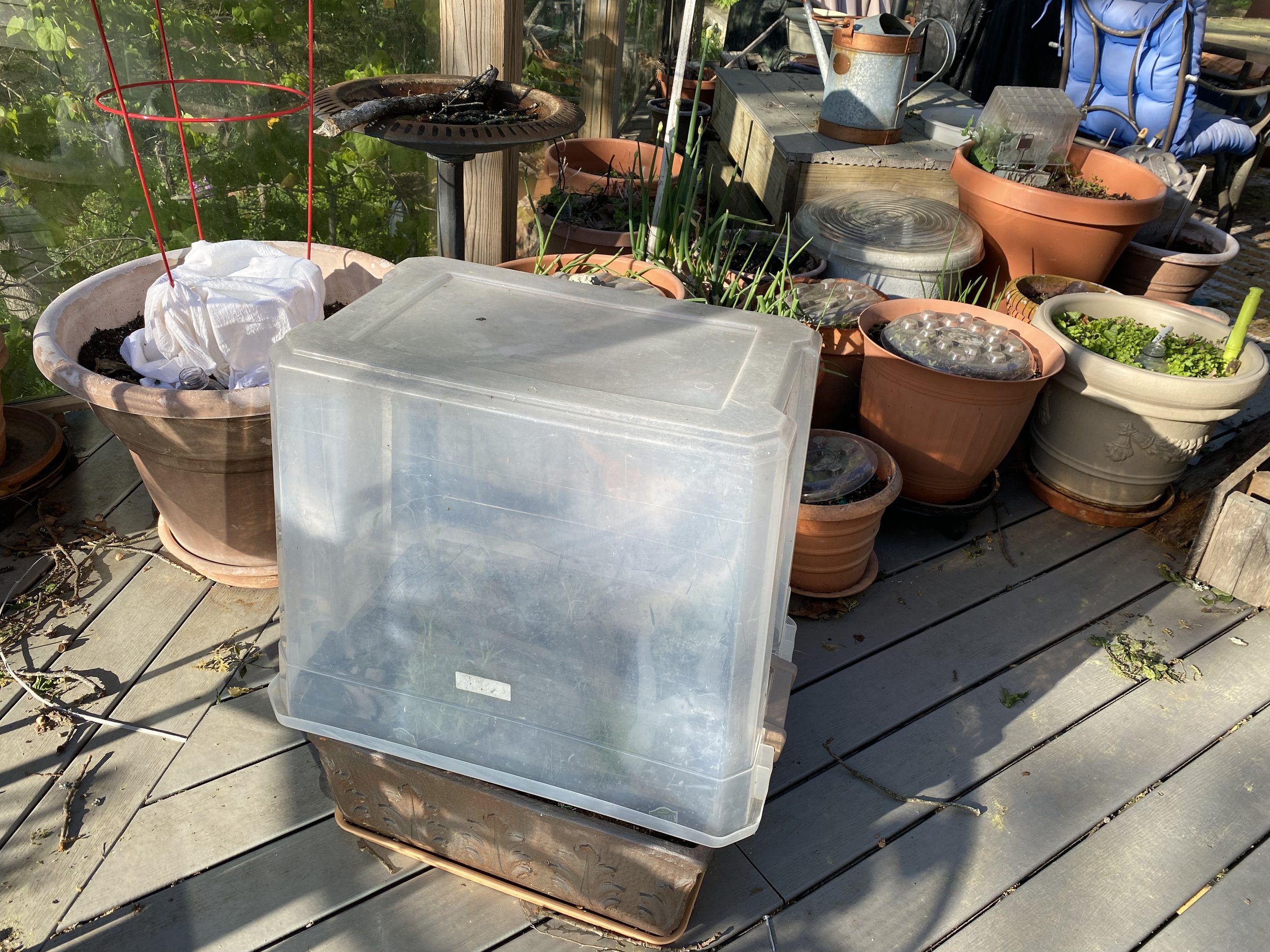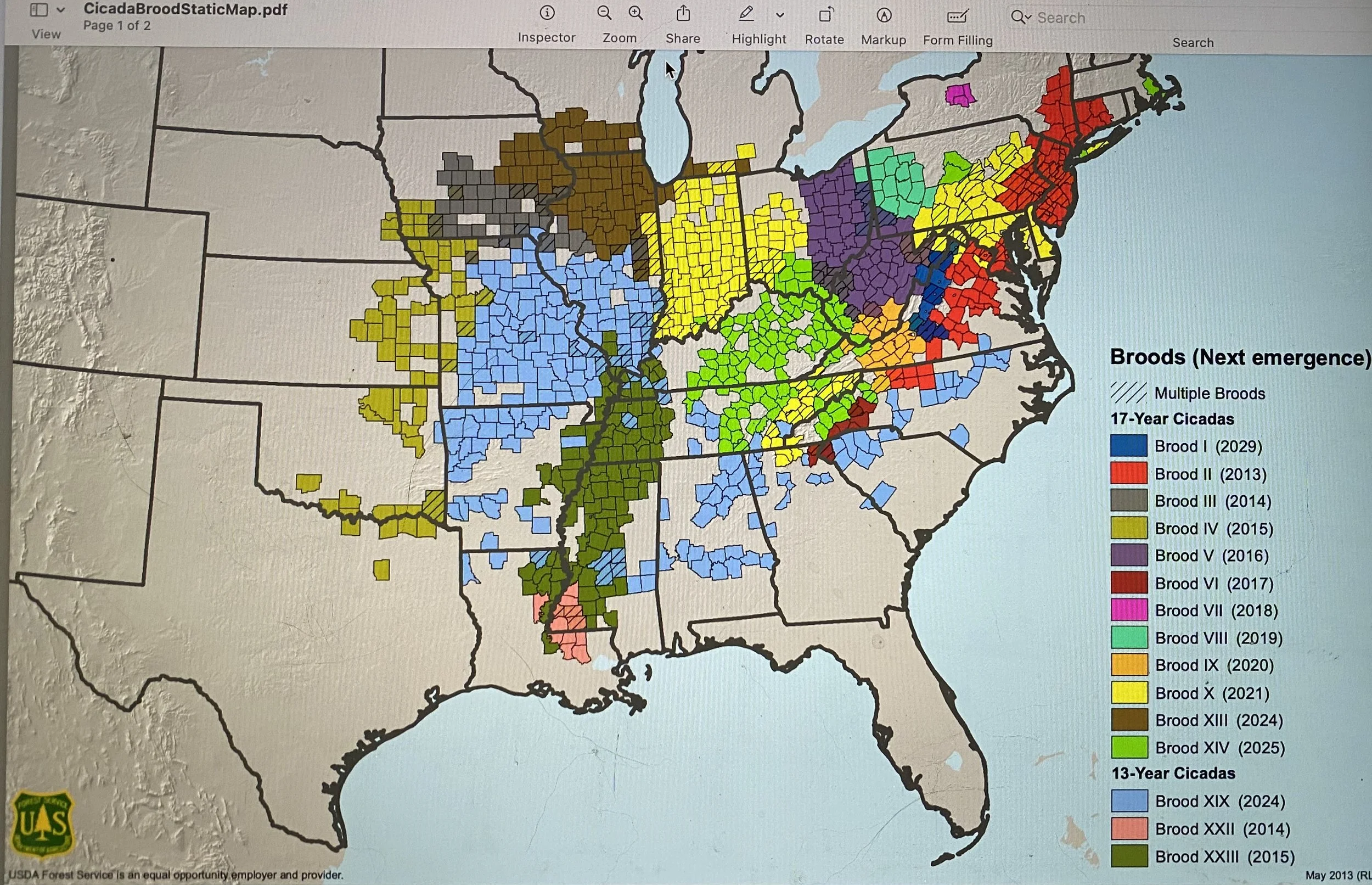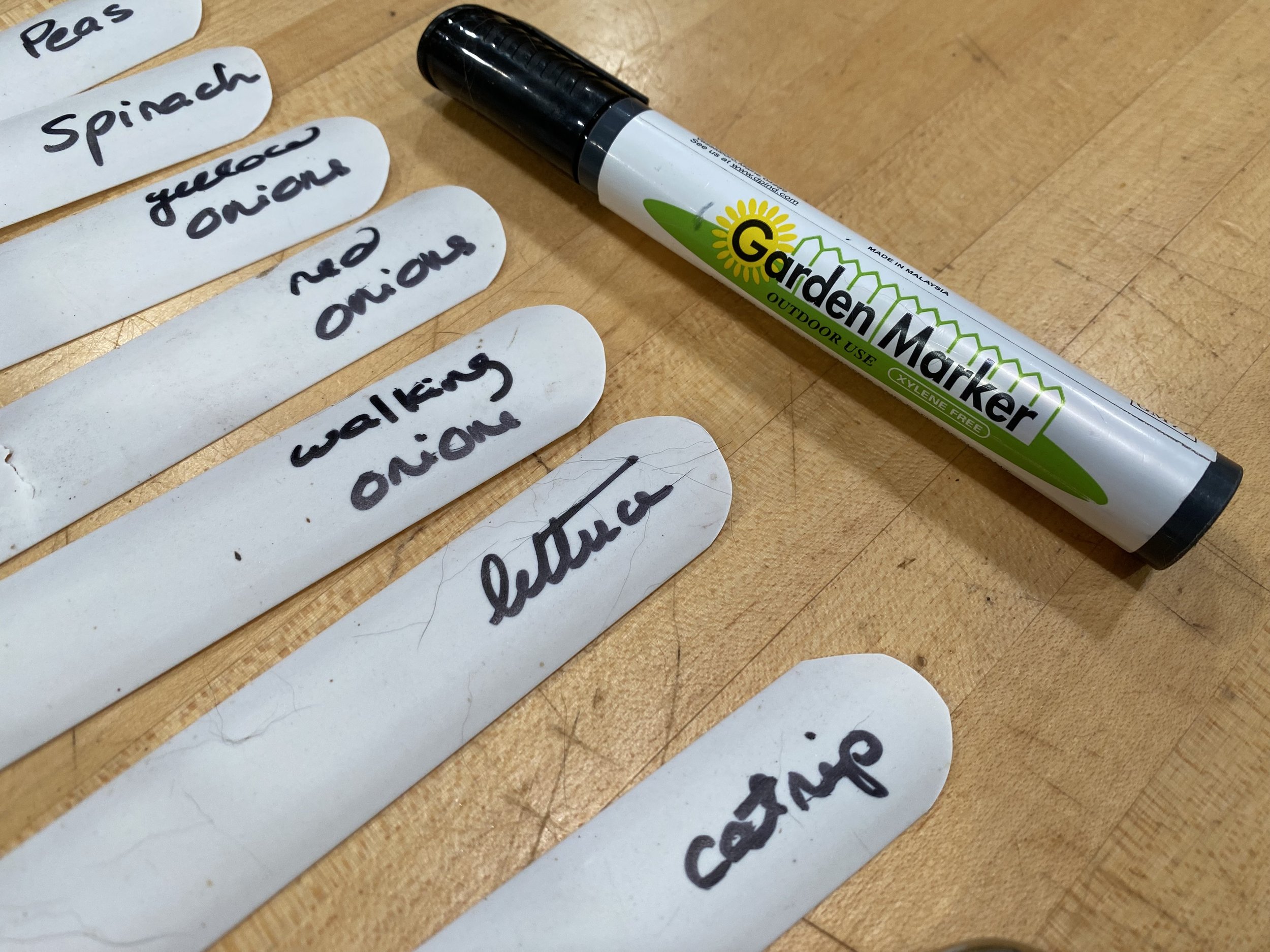Daffodil After Care
/Daffodils blooming among my soil-hugging Blue Vinca. (Photo by Charlotte Ekker Wiggins)
Daffodil After Care
Daffodils are a garden favorites and for good reason. They are easy to plant; they come back year after year and, with a little good care, will bloom for many years to come. I’m talking decades here.
If you have ever come across abandoned farmsteads, you usually can find the main farm house by following the daffodils. These small, old-fashioned yellow trumpet-faced flowers announced the advent of spring and were usually planted close to home.
There is another reason why they survived for so long. Their green leaves, or stalks, were not cut down after they bloomed. The leaves are solar collectors, turning sunlight into sugar that is stored in the underground bulbs. That stored energy generates the next year’s flowers. Now do you think you might know why your daffodils aren’t blooming?
I keep bunches of daffodils together for garden color. (Photo by Charlotte Ekker Wiggins)
Cutting Daffodils
One of my favorite all time things to do with daffodils is to cut and share them. To maintain their obvious garden presence, I look for daffodils that have fallen to the ground to cut. Some have bent stems, others are just too leggy and can’t hold the flower heads up any more. Those to me are the daffodils that get to come inside, leaving a strong daffodil presence still in the garden.
Downed daffodils get cut for inside flower bouquets. (Photo by Charlotte Ekker Wiggins)
One of my garden walks on the south side. (Photo by Charlotte Ekker Wiggins)
Daffodil After Care
As I am walking the garden to cut daffodils, I also dead head the ones that are fading. Daffodils don’t all bloom at once. The tiny yellow ones are the first to bloom, followed by a wide variety of colors and shapes that get different starts depending on how much sun they have, how much rain, the quality of the soil.
When buying daffodil bulbs, get early, mid and late bloomers to extend your daffodil blooming season. While you are at it, also get a bag of bone meal to add to the bottom of the planting hole. Bone meal is a natural fertilizer and excellent daffodil food. A tiny handful per planting hole is all you need to provide the bulbs phosphate to ensure blooms next year. I also scatter a couple of bags of bone meal over the garden before a good rainfall after they finish blooming.
Now here is one of my clumps of white daffodils that are fading.
A clump of fading white daffodils next to a yellow daffodil bunch. (Photo by Charlotte Ekker Wiggins)
To save what energy they have left, I cut off the fading flower heads leaving the green stems intact. Use clippers to cleanly cut off the flower head.
I also leave the fading flowers in the ground to compost back into the soil. Not always, though. Sometimes I collect the flower heads and add them to the compost bin, just depends on how fastidious I’m feeling.
I don’t cut the nearby yellow daffodils, those stay to keep color in that garden spot.
The daffodil clump trimmed, leaving the fresh flowers. (Photo by Charlotte Ekker Wiggins)
The ground cover around the daffodils is Vinca. To keep my soil on this hillside, Vinca has been an excellent plant to hold in the soil. The blue flowers also look lovely among the yellow and white spring daffodils.
It can take over so if you add Vinca, keep it contained by pulling out the plants by their roots.
My refreshed bouquet of cut daffodils now keeping me company inside. (Photo by Charlotte Ekker Wiggins)
My newest bouquet of mixed daffodils now keeping me company. Do cut and bring some inside, they are wonderful signs of spring and hope!
Charlotte








